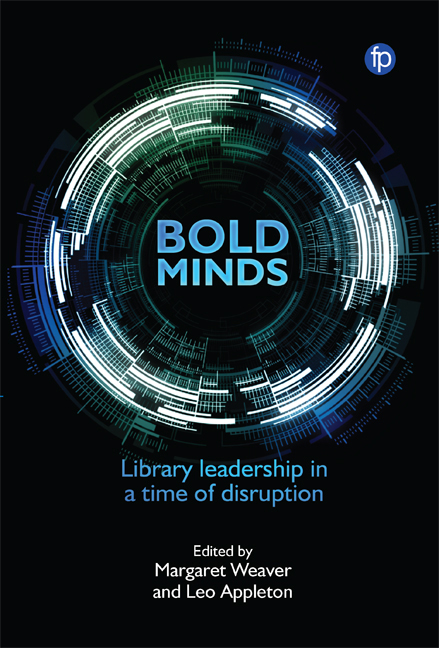Book contents
- Frontmatter
- Contents
- Foreword
- Contributors
- Preface
- Introduction
- Section 1 Views From the Corridors of Power: The Political and Global Perspective
- Section 2 The Re-Birth of Libraries – New Business Models and Re-Generation of Services
- Section 3 Who Really Matters? User Communities and Alignment
- Section 4 The Future Library Professional – Horizons and Challenges
- Index
8 - Leading Change in Medical Libraries in Sweden
Published online by Cambridge University Press: 15 December 2020
- Frontmatter
- Contents
- Foreword
- Contributors
- Preface
- Introduction
- Section 1 Views From the Corridors of Power: The Political and Global Perspective
- Section 2 The Re-Birth of Libraries – New Business Models and Re-Generation of Services
- Section 3 Who Really Matters? User Communities and Alignment
- Section 4 The Future Library Professional – Horizons and Challenges
- Index
Summary
Introduction
The aim of this chapter is to discuss the changing landscape of medical libraries in Sweden and how library leaders work to meet the challenges, describing the Swedish library workforce, as well as providing an overview of the Swedish leadership style, and how it affects the possibilities to develop library services. By medical libraries we mean libraries that are found in hospitals and universities that educate health related professionals and conduct research in the medical field.
The information environment related to the work done in the medical libraries is changing rapidly (Roos et al., 2008). There are many more or less connected factors behind these changes. Among these are the developments that have taken place in information technologies. This progression has changed the work of medical professionals in general and of biomedical researchers in particular. Internationally, scholarly communications systems have been through a drastic change. The process of creating and dis - seminating scientific knowledge has gone through a radical transformation because of digitisation and the possibilities that web-technologies have enabled for sharing research results in electronic formats. The demands of opening up the whole scientific process, open science (OS), has had an important effect on research work in all scientific domains. New infra - structures and processes have been created to support researchers’ opportunities to share research data, publications and tools with the research community. The traditional model of the scholarly communications system, where users pay for reading, is constantly subject to transformation, which consequently has economic impact, as well as affecting the research work processes within the organisations.
Because of this transformation, medical libraries have faced significant changes too. The rapid change of collection format, from print to electronic, has resulted in the re-purposing or even diminishing of the physical library space. New, intelligent search tools and advances in collecting, storing and analysing huge amounts of data also pose new challenges to the services that medical libraries offer. Similarly, developments in educational technology offer possibilities for radical enhancements in the teaching of information related practices. The need to integrate various information objects, for example publications, videos, research data and various tools has forced medical libraries to focus on the whole information environment instead of traditional journal publications.
- Type
- Chapter
- Information
- Bold MindsLibrary Leadership in a Time of Disruption, pp. 149 - 160Publisher: FacetPrint publication year: 2020

